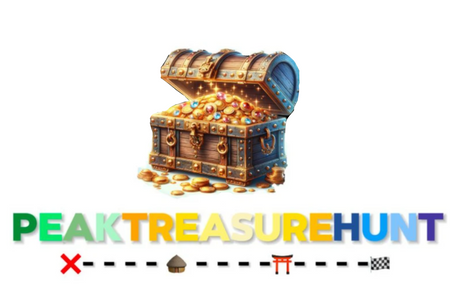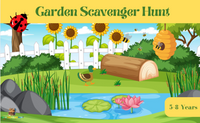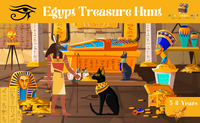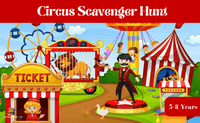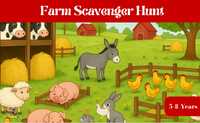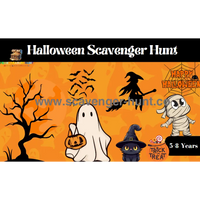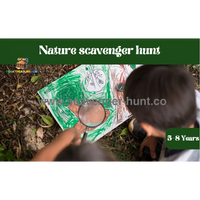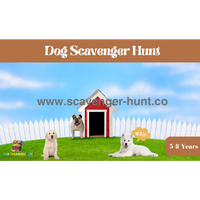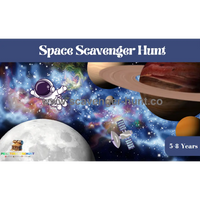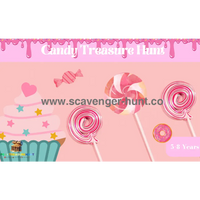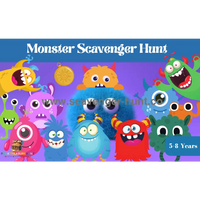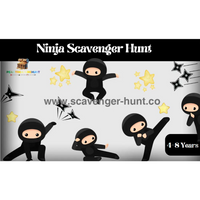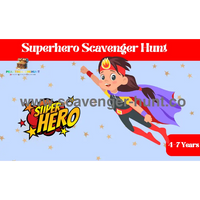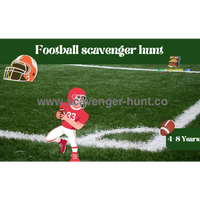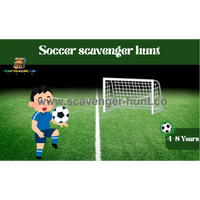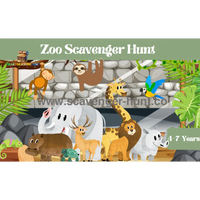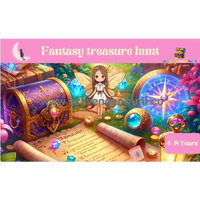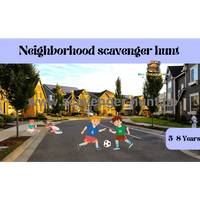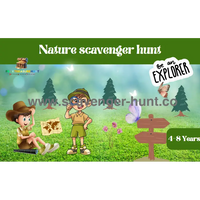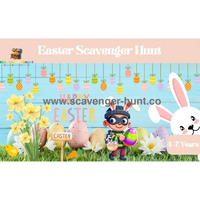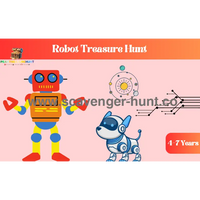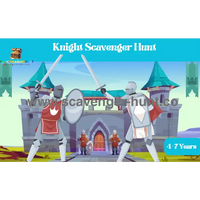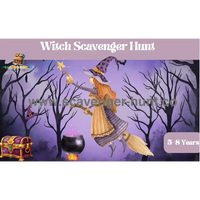Because sometimes the best way to handle multiple kids is to give them a mission that doesn't involve destroying your house.
Welcome to the Beautiful Madness of Group Treasure Hunts
So, you've decided to host a group treasure hunt. First off, let's acknowledge your bravery. You're about to orchestrate an adventure for multiple children, each with their own personality, attention span, and ability to follow directions (spoiler alert: that ability varies wildly).
But here's the thing – group treasure hunts are absolute magic when done right. They're the perfect solution for birthday parties, playdates, family gatherings, or those moments when several kids need to burn energy before they vibrate out of their skin. Plus, watching kids collaborate, problem-solve, and celebrate together? That's the good stuff right there.
The key to success isn't perfection – it's preparation, flexibility, and accepting that controlled chaos is still chaos, and that's perfectly fine.
What Makes Group Treasure Hunts Different (And Why You Need This Guide)
Group treasure hunts aren't just individual hunts with more kids thrown in. Oh no, that would be too simple. Group hunts require:
-
Team dynamics management (because someone always wants to be the leader)
-
Multiple difficulty levels (ages 5-12 in one group? Welcome to your nightmare)
-
Conflict resolution skills (when Emma insists she found the clue first)
-
Crowd control techniques (herding cats has nothing on herding excited kids)
-
Backup plans for your backup plans (trust us on this one)
But don't worry – we've got you covered with strategies that actually work in the real world, not just in parenting blogs written by people who clearly don't have kids.
Planning Your Group Treasure Hunt: The Art of Organized Chaos
Step 1: Know Your Crowd
Age Range Assessment:
-
Same age groups: Easier to plan, similar attention spans, comparable abilities
-
Mixed ages: More challenging but can be incredibly rewarding with proper team balancing
-
The sweet spot: Usually 2-3 year age difference maximum for smooth sailing
Group Size Guidelines:
-
4-6 kids: Perfect size for single-team hunts
-
8-12 kids: Ideal for two-team competitions
-
12+ kids: Multiple teams or station-based hunts work best
-
20+ kids: You're brave. We salute you. Also, consider hiring help.
Personality Mix Considerations:
- The natural leaders (every group has at least one)
- The followers (bless them, they keep things peaceful)
- The rebels (they'll try to shortcut everything)
- The overthinkers (they'll analyze every clue for 10 minutes)
- The runners (they're already three clues ahead)
Step 2: Choose Your Theme Wisely
This is where our extensive theme collection becomes your secret weapon. With group hunts, themes need to be:
-
Inclusive: Appeals to different interests within the group
-
Engaging: Keeps everyone involved
-
Flexible: Adaptable for different skill levels
Top Group-Friendly Themes:
Adventure Themes:
Mystery Themes:
-
Detective Mysteries: Natural team roles (lead detective, evidence collector, witness interviewer)
-
Escape Room Style: Time pressure keeps everyone engaged
-
Secret Agent Mission: Built-in team structure and exciting objectives
Fantasy Themes:
-
Medieval Quest: Knights, princesses, dragons - something for everyone
-
Magical Academy: Perfect for Harry Potter fans and fantasy lovers
-
Fairy Tale Adventure: Classic stories everyone knows
Educational Themes:
-
Time Travel Adventure: History comes alive with interactive challenges
-
Science Laboratory: STEM activities disguised as fun
-
Around the World: Geography and culture exploration
Step 3: Team Formation Strategies
Random Teams:
- Pull names from a hat
- Count off by numbers
- Color-coded selection
-
Pros: Fair, no hurt feelings
-
Cons: Might create unbalanced skill levels
Balanced Teams:
- Mix ages and abilities intentionally
- Pair strong readers with newer readers
- Balance personality types
-
Pros: More equitable experience
-
Cons: Requires more planning
Self-Selected Teams:
- Let kids choose their own teams
-
Pros: They're happy with their team
-
Cons: Potential for hurt feelings and unbalanced teams
Pro Parent Tip: For mixed ages, aim for one older kid per team to help with reading and problem-solving.
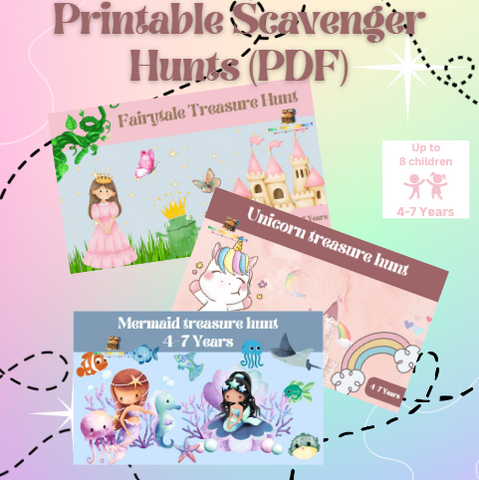
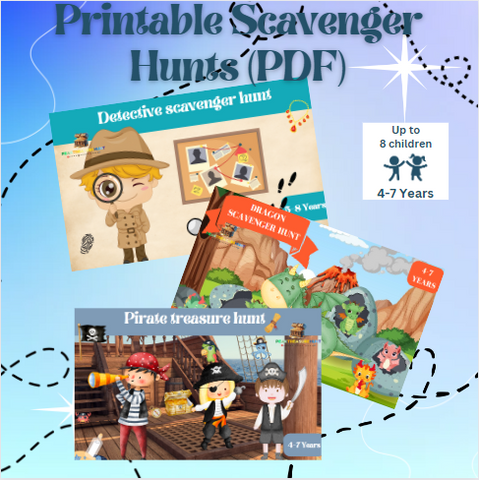
Creating Clues That Work for Groups
Multi-Level Clue Design
The Layered Approach:
-
Level 1: Simple, visual clues for younger kids
-
Level 2: Reading-based clues for middle grades
-
Level 3: Complex puzzles for older kids
-
Team Element: Requires collaboration to solve completely
Example Multi-Level Clue (Pirate Theme):
-
Visual: Picture of a kitchen with a big X
-
Reading: "Where the crew prepares their grub, look inside the silver tub"
-
Puzzle: Math problem that equals the number of the cabinet where the clue is hidden
-
Team Challenge: Requires one person to solve the math, one to read the riddle, and one to search
Collaboration-Focused Clues
Puzzle Pieces: Each team member gets part of a larger puzzle or code Role-Based Clues: Different team members need different information to solve Physical Challenges: Some clues require multiple people (holding a rope, forming human shapes) Knowledge Pooling: Questions that require different areas of expertise
Sample Group Clues
Superhero Mission Theme: Team Challenge: "Heroes, your mission requires all your powers! One hero must use super strength (physical challenge), one must use super sight (find hidden item), and one must use super brain (solve riddle). Only when all three succeed can you discover your next location!"
Detective Agency Theme: Evidence Collection: "Detectives, you've found three pieces of evidence. Team Member A: Find the fingerprint card. Team Member B: Locate the witness statement. Team Member C: Discover the mysterious object. Combine all evidence to crack the case!"
Managing Group Dynamics Like a Pro
The Team Leader Situation
Every group has natural leaders, and that's actually great! The key is channeling their leadership positively:
Rotate Leadership: Each clue can have a different team captain Assign Roles: Give the leader specific responsibilities that help the team Set Ground Rules: "Leaders help their team succeed, they don't do everything themselves"
Handling Conflicts
The "I Found It First" Drama:
- Establish that team success matters more than individual credit
- Create clues that require multiple people to solve
- Celebrate team achievements loudly
The "That's Not Fair" Moments:
- Have a clear fairness policy established upfront
- Build in multiple opportunities for success
- Remember that some drama is normal and manageable
Speed Differences:
- Design clues that require thoughtfulness, not just speed
- Include challenges that play to different strengths
- Build in natural waiting points where teams can regroup
Keeping Everyone Engaged
Multiple Roles Per Clue:
- Reader, searcher, puzzle solver, timekeeper
- Rotate roles so everyone gets to shine
Different Types of Challenges:
- Physical challenges for active kids
- Puzzle challenges for thinkers
- Creative challenges for artists
- Memory challenges for detail-oriented kids
Essential Supplies for Group Hunts
The Group Hunt Survival Kit
Basic Essentials:
- Multiple sets of clues (always have backups)
- Team identification (colored bandanas, stickers, or wristbands)
- Clipboards or folders for each team
- Pencils/pens for each team
- Timer or stopwatch
- Whistle (for gathering attention)
- First aid kit (because groups = higher chance of minor scrapes)
Theme-Specific Supplies: Our shop's themed collections are perfect for group hunts because we provide multiple sets of everything:
-
Pirate Theme: Bandanas for each team, treasure coins, multiple treasure chests
-
Superhero Theme: Cape materials, mask-making supplies, power-up tokens
-
Detective Theme: Magnifying glasses for each team, evidence bags, detective badges
-
Space Theme: Astronaut helmets, space mission patches, cosmic collectibles
Crowd Control Tools:
- Portable speaker for announcements
- Megaphone (if you're feeling dramatic)
- Rally flags or signs for team gathering
- Prize bags for multiple winners
Technology Integration
Simple Tech Additions:
- QR codes for older kids (they love scanning things)
- Timer apps for time challenges
- Camera for documenting the adventure
- Playlist of theme music for atmosphere
Low-Tech Alternatives:
- Everything above can be done without technology
- Physical timers, printed photos, actual music instruments
- Sometimes less tech = more engagement
Step-by-Step Group Hunt Execution
Pre-Hunt Setup (The Night Before + Morning Of)
The Night Before:
-
Test Your Route: Walk through everything yourself
-
Prepare Team Materials: Sort supplies into team kits
-
Set Up Decorations: Transform your space to match the theme
-
Prep Snacks and Drinks: Groups get hungry and thirsty fast
Morning Of:
-
Final Setup: Place clues and treasures
-
Safety Check: Remove any new hazards, check weather
-
Backup Plan Review: Know your indoor alternatives
-
Personal Prep: Caffeine. Seriously. You'll need it.
The Grand Introduction
Set the Scene:
- Gather everyone in your starting area
- Get them excited about the theme
- Explain the basic rules clearly
- Introduce team concepts
Rule Setting:
- Teams work together, not against each other
- Everyone participates, everyone contributes
- Safety first, fun second, winning third
- Adults are there to help, not to take over
Team Formation:
- Use your chosen method quickly and decisively
- Give teams 5 minutes to come up with team names
- Distribute team materials and first clues
During the Hunt: Your Role as Hunt Master
Be the Enthusiastic Guide:
- Your energy sets the tone for everyone
- Celebrate discoveries and problem-solving
- Take lots of photos and videos
Provide Strategic Help:
- Give hints when teams are truly stuck
- Redirect if teams go off course
- Mediate conflicts quickly and fairly
- Keep an eye on safety always
Manage the Flow:
- Keep teams relatively together (no one team too far ahead)
- Call for water breaks
- Watch for fatigue and adjust accordingly
Stay Flexible:
- Skip clues if teams are struggling
- Add bonus challenges if they're flying through
- Modify rules on the fly if needed
Themed Group Hunt Ideas That Actually Work
Pirate Treasure Adventure: "The Quest for Captain Blackbeard's Gold"
Setup: Transform your space into a pirate ship and mysterious islands
- Pirate flags and nautical decorations
- Treasure chests at various stations
- "Ship's deck" starting area
- "Islands" (different rooms or outdoor areas)
Team Structure:
- Each team is a pirate crew
- Team roles: Captain (leader), Navigator (map reader), Treasure Hunter (searcher), Lookout (timekeeper)
Sample Hunt Flow:
-
Ship's Briefing: Receive treasure map and first clue
-
Navigate to Skull Island: Solve riddles to find the hidden compass
-
Cross Crocodile Swamp: Physical challenge requiring teamwork
-
Escape the Cave of Echoes: Sound-based puzzle
-
Final Treasure: Discover Captain Blackbeard's legendary treasure chest
Group Challenges:
- Rope challenges requiring multiple people
- "Pirate code" puzzles that need different team members' input
- Physical obstacles that require cooperation
Superhero Academy: "Save the City Mission"
Setup: Create a superhero training facility
- Different "training stations" around your space
- City skyline backdrop
- Emergency alert system (your phone with superhero sounds)
Team Structure:
- Each team is a superhero squad
- Team roles: Team Leader, Strength Hero, Speed Hero, Brain Hero, Heart Hero
Sample Hunt Flow:
-
Emergency Alert: City in danger, heroes needed!
-
Training Station Alpha: Strength challenges
-
Training Station Beta: Speed and agility tests
-
Training Station Charlie: Problem-solving puzzles
-
Training Station Delta: Teamwork and trust exercises
-
Final Mission: Combine all skills to "save the city"
Group Challenges:
- Obstacle courses requiring spotting and encouragement
- "Villain puzzles" that need multiple perspectives to solve
- Trust exercises and team building activities
Detective Agency: "The Case of the Missing Birthday Cake"
Setup: Transform your space into detective headquarters
- Evidence boards and investigation materials
- Crime scene tape and mystery atmosphere
- Detective badges and investigation kits for each team
Team Structure:
- Each team is a detective unit
- Team roles: Lead Detective, Evidence Collector, Witness Interviewer, Crime Scene Analyst
Sample Hunt Flow:
-
Case Brief: Birthday cake has mysteriously disappeared
-
Crime Scene Investigation: Examine the kitchen for clues
-
Witness Interviews: Talk to "suspects" (adults in character)
-
Evidence Analysis: Piece together fingerprints, footprints, and testimonies
-
Follow the Trail: Use evidence to track down the culprit
-
Case Closed: Discover the cake and solve the mystery
Group Challenges:
- Different types of evidence that require different skills to analyze
- Witness interviews that need good listening and questioning
- Logical deduction puzzles that benefit from group discussion
Handling Different Age Groups in Mixed Teams
The Preschool + Elementary Mix (Ages 4-8)
Strategies:
- Picture-heavy clues with simple text
- Buddy system pairing older with younger
- Multiple ways to contribute to each challenge
- Frequent celebration of small victories
Clue Adaptations:
- Visual clues with optional text
- Physical challenges accessible to smaller kids
- Role assignments that play to different strengths
The Elementary + Middle School Mix (Ages 6-12)
Strategies:
- Layered clues with multiple complexity levels
- Leadership rotation to give everyone a chance
- Challenges that require both analytical and creative thinking
Clue Adaptations:
- Basic clues with bonus challenge components
- Technology integration for older kids
- Advanced puzzles alongside simpler tasks
Pro Parent Tips for Mixed Ages:
-
The Buddy System: Pair older kids with younger ones for reading and problem-solving
-
Multiple Success Points: Design clues so there are several ways to contribute
-
Rotate Leadership: Let different kids take the lead on different clues
-
Celebrate All Contributions: Make sure every child feels valuable to their team
Safety Considerations for Groups
Indoor Safety for Crowds
Space Management:
- Clear pathways and remove tripping hazards
- Ensure adequate space for group movement
- Have designated safe zones for breaks
- Keep dangerous areas off-limits and clearly marked
Supervision Ratios:
- Aim for 1 adult per 6-8 kids
- Have adults stationed at key locations
- Designate one adult as the "floater" to help where needed
- Always have someone watching the overall flow
Outdoor Safety for Groups
Boundary Setting:
- Clearly define the hunt area
- Use visible markers for boundaries
- Have adults positioned at perimeter points
- Establish check-in points throughout the hunt
Weather Considerations:
- Always have indoor backup plans ready
- Monitor weather conditions closely
- Have shelter areas identified
- Keep extra water and snacks available
Emergency Preparedness:
- Have a first aid kit easily accessible
- Know where the nearest bathroom is
- Have contact information for all parents
- Establish a clear procedure for lost children
Timing and Pacing for Groups
Age-Based Timing Guidelines
Ages 4-6:
- Total hunt time: 30-45 minutes
- 4-6 clues maximum
- Frequent breaks and celebrations
- Simple, quick challenges
Ages 7-9:
- Total hunt time: 45-60 minutes
- 6-8 clues
- Mix of easy and moderate challenges
- One major break midway through
Ages 10-12:
- Total hunt time: 60-90 minutes
- 8-12 clues
- Complex challenges and puzzles
- Built-in checkpoints for team regrouping
Pacing Strategies
The Accordion Method:
- Design clues that can expand or contract based on how groups are doing
- Have optional bonus challenges ready
- Be able to skip clues if groups are struggling
Natural Breakpoints:
- Build in moments where all teams reconvene
- Use these for water breaks, encouragement, and redirection
- Perfect opportunity for photos and celebrating progress
Prize and Reward Strategies
The "Everyone Wins" Philosophy
With group hunts, the goal isn't to create winners and losers – it's to create an awesome experience for everyone. Here's how to handle rewards:
Team Rewards:
- Each team gets a different "type" of treasure
- Team A finds the "Courage Treasure"
- Team B finds the "Wisdom Treasure"
- Team C finds the "Friendship Treasure"
Individual Recognition:
- "MVP" awards for different contributions
- Best Teamwork, Best Problem Solver, Best Encourager, etc.
- Everyone gets recognized for something
Participation Prizes:
- Themed certificates of completion
- Small themed items for everyone
- Group photo as a team
- Special themed snack or treat
Budget-Friendly Reward Ideas
DIY Certificates:
- Create themed completion certificates
- Let kids sign each other's certificates
- Include space for their favorite part of the hunt
Experience Rewards:
- Extra playtime at the location
- Special themed activity after the hunt
- Movie or story time related to the theme
Consumable Treats:
- Themed snacks (pirate goldfish crackers, space freeze-dried ice cream)
- Special drinks in themed cups
- Birthday cake if it's a party hunt
Troubleshooting Common Group Hunt Challenges
"Our Team Is Behind!" Drama
Prevention:
- Design clues that don't require linear completion
- Have multiple paths to success
- Build in catch-up mechanisms
In-the-Moment Solutions:
- Provide extra hints to struggling teams
- Have faster teams help slower teams
- Redirect focus from speed to teamwork
Team Member Conflicts
The Bossy Leader:
- Rotate leadership roles
- Give them specific responsibilities that help others
- Praise collaborative leadership when you see it
The Disengaged Kid:
- Find their strength and create a role around it
- Pair them with an encouraging teammate
- Check if they need a break or different challenge
The Speed Demon:
- Give them the role of team supporter
- Create tasks that require patience and collaboration
- Channel their energy into helping others
Weather and Timing Disasters
Rain on Outdoor Hunt Day:
- Have indoor backup ready to go
- Modify outdoor clues for indoor use
- Turn weather into part of the adventure ("The storm has shifted our quest!")
Hunt Running Long:
- Skip to final clues if energy is flagging
- Combine remaining clues into one big challenge
- Declare victory early if kids are getting tired
Hunt Finishing Too Quickly:
- Have bonus challenges ready
- Extend current challenges with additional components
- Move to free play with hunt materials
Seasonal and Holiday Group Hunts
Summer Group Hunts
Water-Themed Adventures:
-
Beach treasure hunts with sand castles and shell collecting
-
Pool party hunts with floating clues
- Water balloon challenges integrated into clues
- Ice cream treasure hunts ending with cold treats
Camping and Outdoor Themes:
-
Nature scavenger hunts with educational components
- Campfire preparation hunts
- Wildlife tracking adventures
- Outdoor survival skill challenges
Fall Group Hunts
Halloween Spooktacular:
-
Monster hunt with friendly creatures
- Candy corn treasure trails
- Pumpkin patch adventures
- Costume-integrated challenges
Harvest Festival Themes:
- Apple orchard treasure hunts
- Corn maze adventures
- Thanksgiving gratitude hunts
- Fall leaf collection missions
Winter Group Hunts
Holiday Magic:
- Christmas around the world cultural hunts
- Winter wonderland indoor adventures
- Holiday cookie treasure trails
- Gift-giving mission hunts
Cozy Indoor Adventures:
- Hot chocolate treasure hunts
- Indoor camping adventures
- Library mystery hunts
- Art studio treasure quests
Spring Group Hunts
Garden and Nature Themes:
- Flower power treasure hunts
- Bug exploration adventures
- Earth Day environmental missions
- Spring cleaning treasure hunts (yes, really!)
Advanced Group Hunt Techniques
Multi-Station Hunts
Instead of teams following the same path, create different stations that teams rotate through:
Station Setup:
- 4-6 different challenge stations
- Teams spend 10-15 minutes at each station
- Different types of challenges at each station
- Teams collect different pieces of a larger puzzle
Benefits:
- No crowding or waiting
- Different strengths highlighted at different stations
- Natural built-in timing
- Easy to supervise with stationed adults
Progressive Difficulty Hunts
Start easy and get progressively more challenging:
Structure:
- First few clues: Everyone succeeds easily
- Middle clues: Moderate challenge, some teamwork required
- Final clues: Complex challenges requiring full team collaboration
Benefits:
- Builds confidence early
- Natural skill development
- Keeps everyone engaged throughout
- Ends on a high note of achievement
Choose-Your-Own-Adventure Hunts
Give teams choices in their path:
Structure:
- After completing initial challenges, teams choose their next adventure
- Different paths lead to different types of challenges
- All paths converge for a final group challenge
Benefits:
- Teams can play to their strengths
- Natural differentiation
- Increased engagement through choice
- Replay value for future hunts
Building Community Through Group Hunts
Extended Family Gatherings
Group treasure hunts are perfect for family reunions and extended family gatherings:
Multi-Generational Teams:
- Mix ages from grandparents to grandchildren
- Create roles for different abilities and mobility levels
- Focus on family history and shared memories
- Include storytelling elements
Family Tradition Building:
Neighborhood and Community Events
Block Party Hunts:
- Neighborhood-wide treasure hunts
- Local business integration
- Community helper themes
- Neighborhood history exploration
School and Organization Events:
- Fundraising treasure hunts
- Educational curriculum integration
- Team building for groups
- Community service themes
When Things Go Beautifully Wrong
Let's be honest – group hunts rarely go exactly according to plan. And that's often when the magic happens. Here are some "failures" that turned into the best parts:
The Great Clue Mix-Up: When you accidentally give teams the wrong clues and they end up creating their own adventure. Roll with it – their creativity might be better than your original plan.
The Weather Rebellion: When your outdoor pirate hunt gets rained out and becomes an indoor "pirate ship trapped in a storm" adventure. Sometimes limitations spark the best creativity.
The Collective Rebellion: When all the teams decide they want to work together instead of separately. Congratulations, you've accidentally created a cooperation masterpiece.
The Theme Evolution: When your superhero hunt spontaneously becomes a superhero-pirate-detective adventure because the kids started combining ideas. Embrace the chaos – it's their hunt now.
Conclusion: You're Ready to Lead the Adventure
Hosting group treasure hunts for kids is part art, part science, and part controlled chaos management. But when you see a group of kids working together, celebrating each other's successes, and creating memories that will last for years – that's when you know you've done something truly special.
Remember, the perfect group hunt isn't about flawless execution. It's about creating an environment where kids can explore, collaborate, problem-solve, and have adventures together. With our extensive collection of themed supplies and your newfound expertise, you're ready to create experiences that kids will talk about for months.
The most important thing? Have fun yourself. Your enthusiasm is contagious, and when kids see adults enjoying the adventure as much as they are, that's when the real magic happens.
So gather your supplies, round up your adventurers, and get ready to create some epic group memories. Whether you're hosting a birthday party, managing a playdate, or organizing a family gathering, you now have everything you need to turn any group of kids into a team of treasure hunters.
Because the best childhood memories are made when kids discover that the real treasure was the friends they adventured with along the way.
Ready to start your group treasure hunting adventure? Browse our complete collection of ready-to-use printable themed treasure hunt kits for kids and turn any ordinary day into an extraordinary quest. From space exploration kits to underwater discovery sets, we have everything you need to create magical memories that will last a lifetime.


